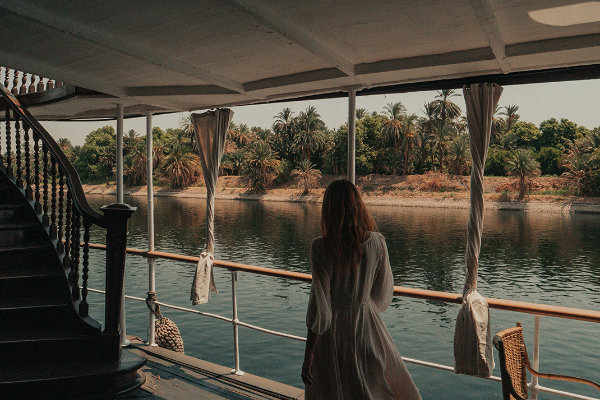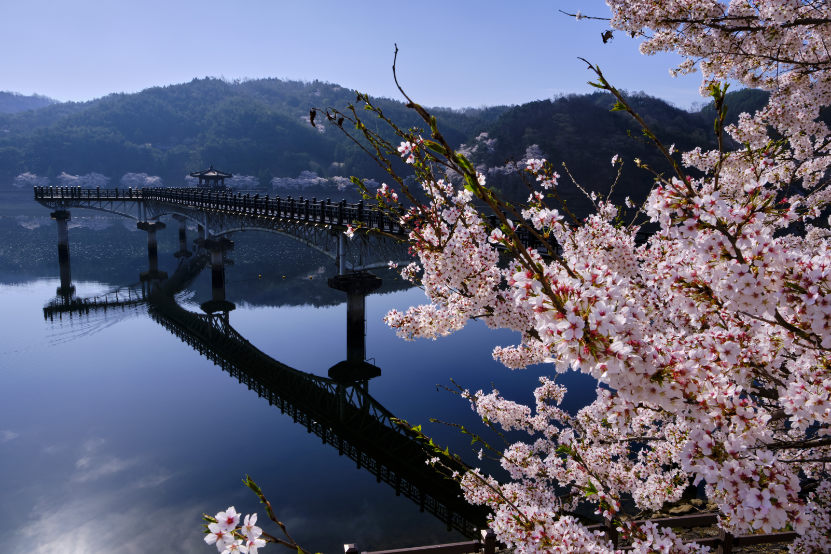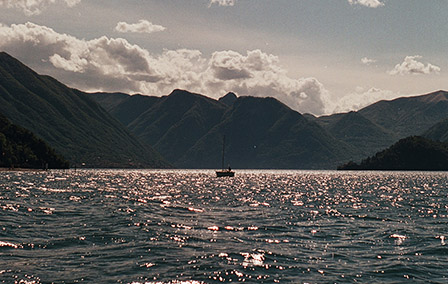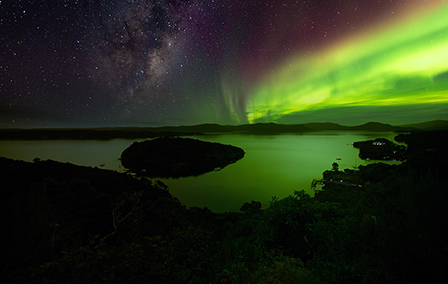
Published 24th Apr. 2024
Reading time
Whether you were lucky enough to experience 2024’s total solar eclipse first-hand or, like us, had to enviously watch it through a screen, one thing’s for sure: we’ve all been frantically asking, ‘when is the next solar eclipse?’. It’s natural to want in on the action. Eclipses are a phenomenon straight out of a sci-fi film, and here in the UK, we won’t experience a total one until 2090. While you never need an excuse to get away, chasing one of the future solar eclipses around the globe is the perfect reason to indulge in a travel adventure infused with cosmic wonder. So, grab your eclipse glasses and get ready to witness one of the world’s most magnificent sights...
If you find yourself asking Google, ‘When is the next solar eclipse in Europe?’ the good news is it’s coming in 2026, with all eyes set to fall on Iceland and Spain. Iceland will be eagerly anticipating its first total solar eclipse since 1954, while Spain will be spoiled with this spectacle again in 2027. Luckily for moon-shadow seekers, this event will take place on the 12th of August, when the sun has sizzled Spain and melted away Iceland’s bitter chill. Sounds like prime holiday time if you ask us. So, whether you’re after sand, sangria and siestas in Spain or bubbling hot springs in Iceland, make sure you aim your (protected) eyes at the sky come the 12th of August.
Check out an example itinerary for Spain here: Tapas Tours & Treasure Hunts: A Family Trip to Barcelona

Image by Sky Lagoon & Pursuit
In February 2027, chase the solar eclipse around the southern hemisphere. On the 6th, an annular solar eclipse will sweep along the eastern coast of South America, drawing eyes to the skies in Uruguay, Argentina and Brazil. While a partial eclipse will be visible throughout these countries, Montevideo (Uruguay's coastal capital) will offer the most spectacular views of this phenomenon. Situate yourself here for the main event, then, once you've been suitably stunned, branch out towards the vast and plentiful plains of Argentina and Brazil.
Check out an example itinerary for Uruguay here: Vineyard Tours and Blissful Beach Days: A Tailor-Made Uruguay Holiday
Check out an example itinerary for Argentina and Brazil here: Exploring Icons in Argentina and Brazil
We might be biased, but cruising down Egypt’s Nile on the Steam Ship Sudan or the Flâneuse du Nil is a travel experience like no other. And if the formidable pharaonic ruins aren’t enough, why not throw in a solar eclipse for extra measure? On the 2nd of August 2027, make sure you’ve bagged yourself a room onboard, as Luxor – one of the Nile’s best stops – will witness an impressive six minutes and 22 seconds of shadowy skies, around a minute shy of the longest total eclipse time. If staying on solid ground is more your thing, fear not. Morocco’s white-washed city of Tangier and Saudi Arabia’s coastal hub, Jeddah are also in on the action, allowing for dazzling views whichever you choose.
Check out an example itinerary for Egypt here: On the River Nile: Luxury Hotels & a Cruise on the Steam Ship Sudan
Check out an example itinerary for Saudi Arabia here: Cities, Sand and Sea: The Best of Saudi Arabia

Image by Sébastien Zanella.
What better way to beat the January 2028 blues than with a solar eclipse? Ringing in the New Year with flair, large swathes of northern South America are set to witness this glorious spectacle in the last week of the month. For the best experience, set your sights on Ecuador. While its landscapes and the Galapagos archipelago are always awe-inspiring, they'll gain another dimension of splendour on the 26th of January 2028. Guayaquil, nicknamed 'The Pearl of the Pacific,' will experience the best visibility, allowing you to gaze up at the eclipse (with safety glasses firmly on, of course) from the surroundings of a vibrant metropolis before jetting off to the remote havens of the Galapagos to revel in yet more natural wonders.
Check out an example itinerary for Ecuador and the Galapagos here: A Trio of Galapagos Islands
If you’re a fan of far-flung future travel plans, 2028’s eclipse is the one for you. While Australia and New Zealand’s scorching sun turns down the heat in July, it will still impress when it slips behind the moon. Time your Australian adventure so you’re in El Questro on the 22nd of July 2028. Here, you’ll be bang in the middle of the eclipse’s path, watching as the vast and untamed landscape of The Kimberley is plunged into darkness. Over in New Zealand, bundle up and head to Queenstown or Dunedin to witness the total solar eclipse, then make the most of the cooler climes and tackle the great outdoors (without breaking a sweat).
Check out an example itinerary for Australia here: Across the Kimberley: Exploring Australia's Untamed Outback
Check out an example itinerary for New Zealand here: New Zealand from North to South: Auckland to Queenstown

Image by Ain Raadik
Despite how hard we protest, 2030 will roll around quicker than we like. So why not plan a solar eclipse-themed safari for its arrival? The spectacle is headed for South Africa’s skies on the 25th of November, a gloriously crowd-free time to visit. You’ll want to be in Durban to snag the main event’s best seats, before using the city as a gateway to some of the country’s greatest game reserves teeming with wildlife. An adventure that combines natural wonders both on the ground and high up in the cosmos? Sign us up.
Written by Evie Buller | Header Image by Garry Bowcott / Getty Images
Practical advice and inspiration for your next trip

When you think of cherry blossom, we’d bet you picture Japan and its springtime Sakura. Now, we’re not denying that Sakura season is beautiful, but its reputation means it draws flocks of visitors, contributing to overtourism and disrupting local life. To combat this, we’re on a mission to shout about South Korea’s cherry blossom. Known locally as beotkkot, South Korea’s cherry trees bloom at a similar time to Japan’s and are just as breathtaking – without the pesky crowds (and skyrocketing costs).
20th October 2025 - South Korea The Natural World

Since the beginning of time, humans have been drawn to lakes, whether it’s to appreciate their beauty or see first-hand the places where monsters such as Nessie (Scotland) and Ogopogo (Canada) are said to reside. Fortunately, we’re spoilt for choice, from Lake Como’s bluer-than-blue waters to Moraine Lake’s magnificent mountainous backdrop. Fancy a trip to one of the world’s best bodies of water? Read on for our shortlist of the most beautiful lakes in the world… Lake Como,
9th May 2025 - The Natural World

Is it always possible to see the Southern Lights? No. Is it worth trying? Without a shadow of a doubt. The Southern Lights (aurora australis) are notoriously more difficult to see than their northern counterparts, but that only makes the swirling rivers of greenish blue even more spectacular when you do catch a glimpse of them. The best time to see the aurora australis is during the Southern Hemisphere’s darker, cooler months – from March to September – when the skies are clearest and the nights are longest.
14th March 2025 - The Natural World

Our team of destination experts will get to know you and your unique requirements for your holiday

We work with you to build an ultra-personalised holiday itinerary with your choice of accommodation, experiences and activities

All of our holidays include little extras designed to make a big difference to your trip, from fast-tracking you through airport check-in and security to our network of local Concierges